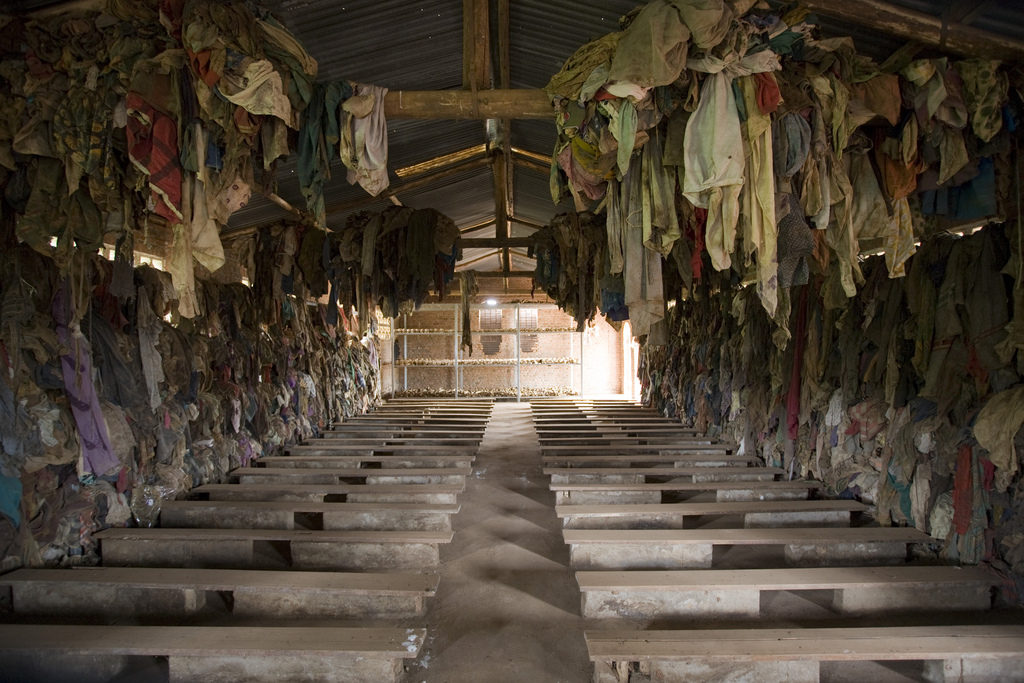
Genocide against the Tutsi in Rwanda: why the victims are not paid compensation
Genocide is an irreparable crime, but financial reparations for survivors would help mend damage done and educate society
By Jean Paul Mugiraneza in Nairobi, for Insights on Conflict
Published in Guardian Professional,
The severity and pace at which the Genocide against the Tutsi in Rwanda unfolded begs many questions. How does a country begin to recover after such an event? Yet Rwanda serves as a development success story, thanks to the combined efforts of the Rwandan government and wider society.
Nationally, the government created the national commission for unity and reconciliation, in addition to special chambers to prosecute the most notorious war criminals. At the community level, traditional Gacaca courts were employed to provide reconciliation and justice with over 100,000 people indicted for crimes of genocide. Internationally, the United Nations established the International Tribunal for Rwanda (ICTR).
Financial compensation – an essential component of true justice
The government has established a fund, Farg, to provide health care and tuition for survivors. But does this go far enough? Though Rwanda and the international community have valiantly pursued justice, financial compensation for genocide survivors has still not materialised. Can there be genuine reconciliation without financial reparation? The answer, in my opinion, is no. Reparation plays an important role in both mending the damage done and educating society.
This isn’t to suggest that the subject of reparations is not logistically and morally challenging. Damage caused to both people and property must be fairly assessed, and a monetary value assigned to losses. Some would argue that genocide is an irreparable crime due to the sheer scale of psychological and physical suffering.
But irrespective of these challenges, the silence surrounding the subject of financial reparations is striking. In the immediate aftermath of the genocide, Rwanda was a country in ruins. Tens of thousands had been made orphans, widows and refugees. Already scant infrastructure had vanished, and financial compensation was understandably not an initial priority, as attention was fixed upon rebuilding the basics. But 20 years on, dialogue surrounding the issue of financial reparations remains absent from the political discourse.
Why is the political elite hesitating to enforce compensation for victims?
In theory, the Rwandan legal framework explicitly provides for genocide survivors to receive compensation. 50% of judgements made by the specialised chambers for prosecuting genocide suspects have awarded financial compensation to victims. However, although enforced on a criminal level, they have yet to be enforced with regards to financial compensation.
In some cases the Rwandan government itself has been mandated to pay indemnities to the victims. But the minister of justice ordered the suspension of “all cases in which the Rwandan government is called upon to intervene.” In 2001, a bill calling for the creation of a compensation fund was formulated, but it never materialised.
We could interpret this in two ways: either as a demonstration of the practical difficulties of reparations, or as a political decision not to take that route.
It has been speculated that at the forefront of government concerns are how financially compensating the survivors of the Tutsi community may affect social cohesion. Some worry that openly providing government financial support to the Tutsi community could risk fostering resentment amongst the Hutu majority community.
How the international community is failing the victims
It is generally agreed that the UN, instead of protecting civilians, failed them by leaving the country at the peak of the killings. Its reputation among Rwandans has suffered as a result. One would hope that after its failures the UN would take a leading role in compensating survivors. Unfortunately, it has so far shown interest only in criminal proceedings, ignoring financial reparations. Although it did establish the ICTR, it has avoided dealing with the subject of reparations. How can the UN not understand its importance in the rehabilitation of victims and the administration of justice?
It could be concluded that there is a lack of a will to participate in the reparation process. Initiatives have been taken to encourage the UN to amend ICTR’s statute to include the creation of a compensation fund, but without success. According to former prosecutor Carla Del Ponte, “Every judge agrees with the principle that victims should be compensated.”
The UN commission created to compensate Kuwaitis following their 1990 invasion by Iraq – as well as the $1.07bn subsequently made available to the government of Kuwait – shows a willingness to participate in the reparation process. So how can we explain the UN’s reluctance to do so in Rwanda?
Perhaps some of the blame lies with the Rwandan government. Its weak stance regarding financial reparations to the Tutsi people might explain the international community’s hesitance to intervene. The solution to this is concrete measures at a national level to encourage other international partners to participate – a compensation endowment, as was originally intended by the draft law in 2001, for example. We should recognise the contribution of Farg to improving the living conditions of survivors – every year 6% of total state revenue is spent on it. But assisting survivors is an obligation for any responsible nation. It does not remove the right to financial reparations.
Jean Paul Mugiraneza is a peace expert based in Kenya.
